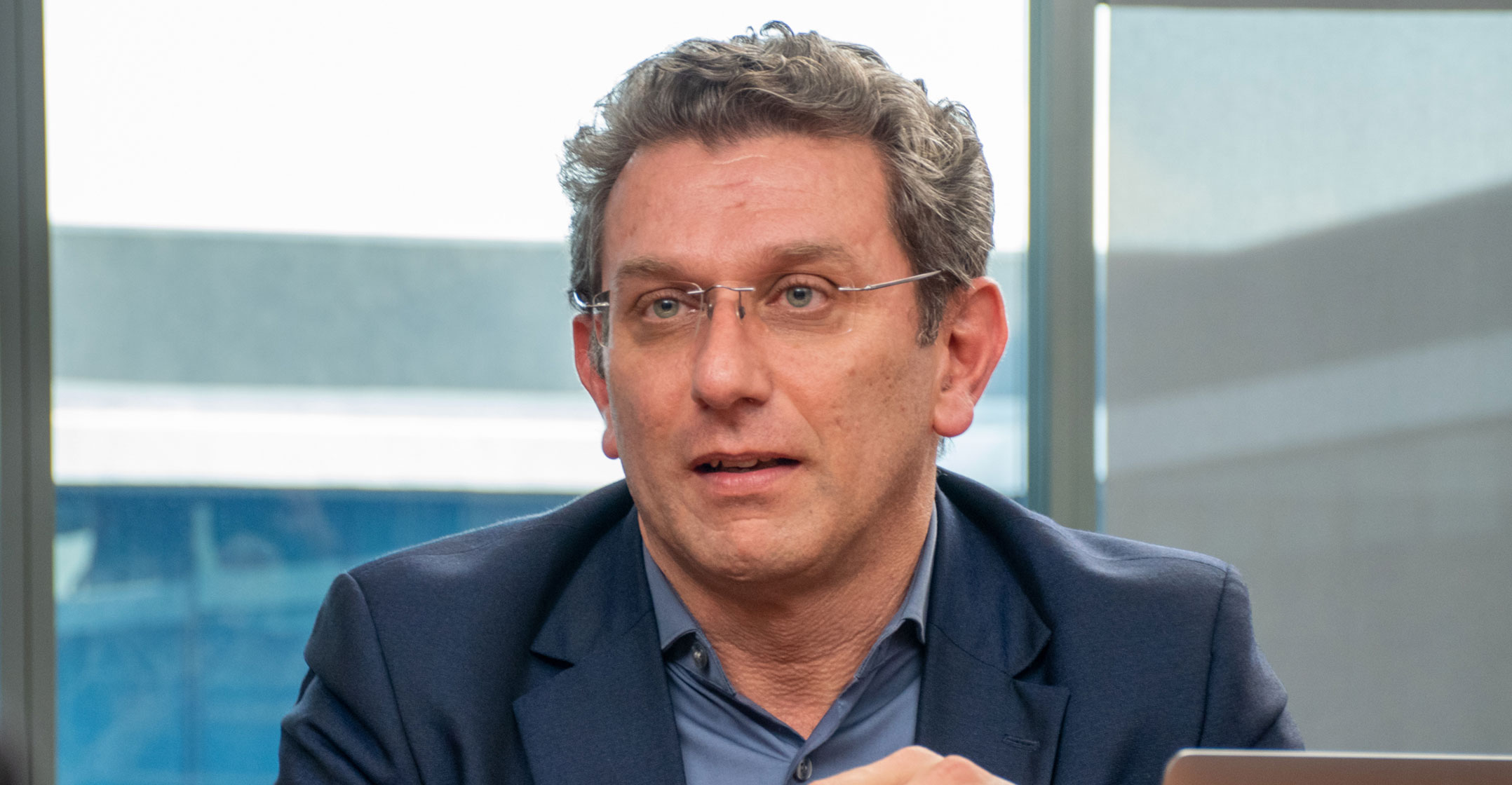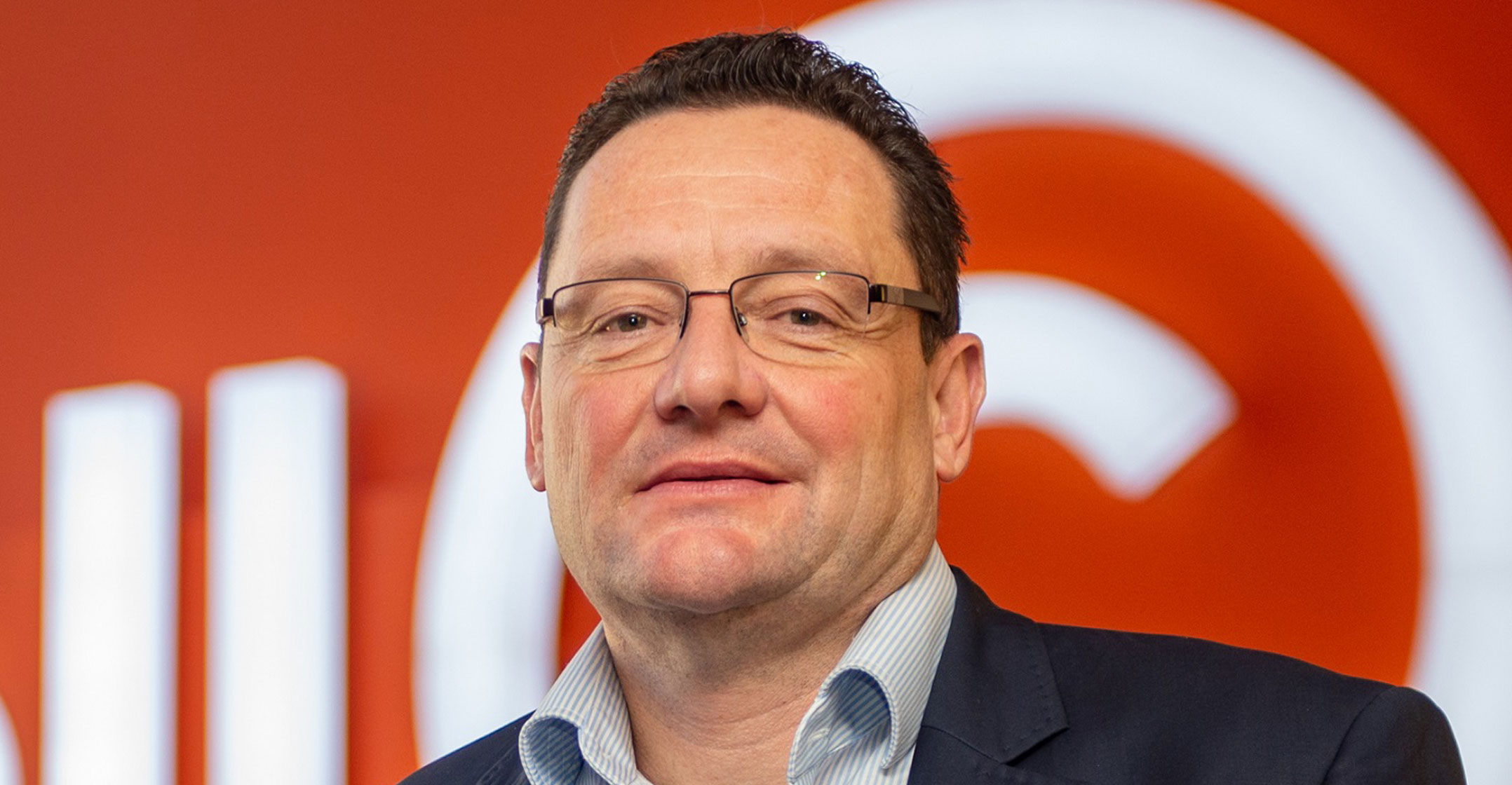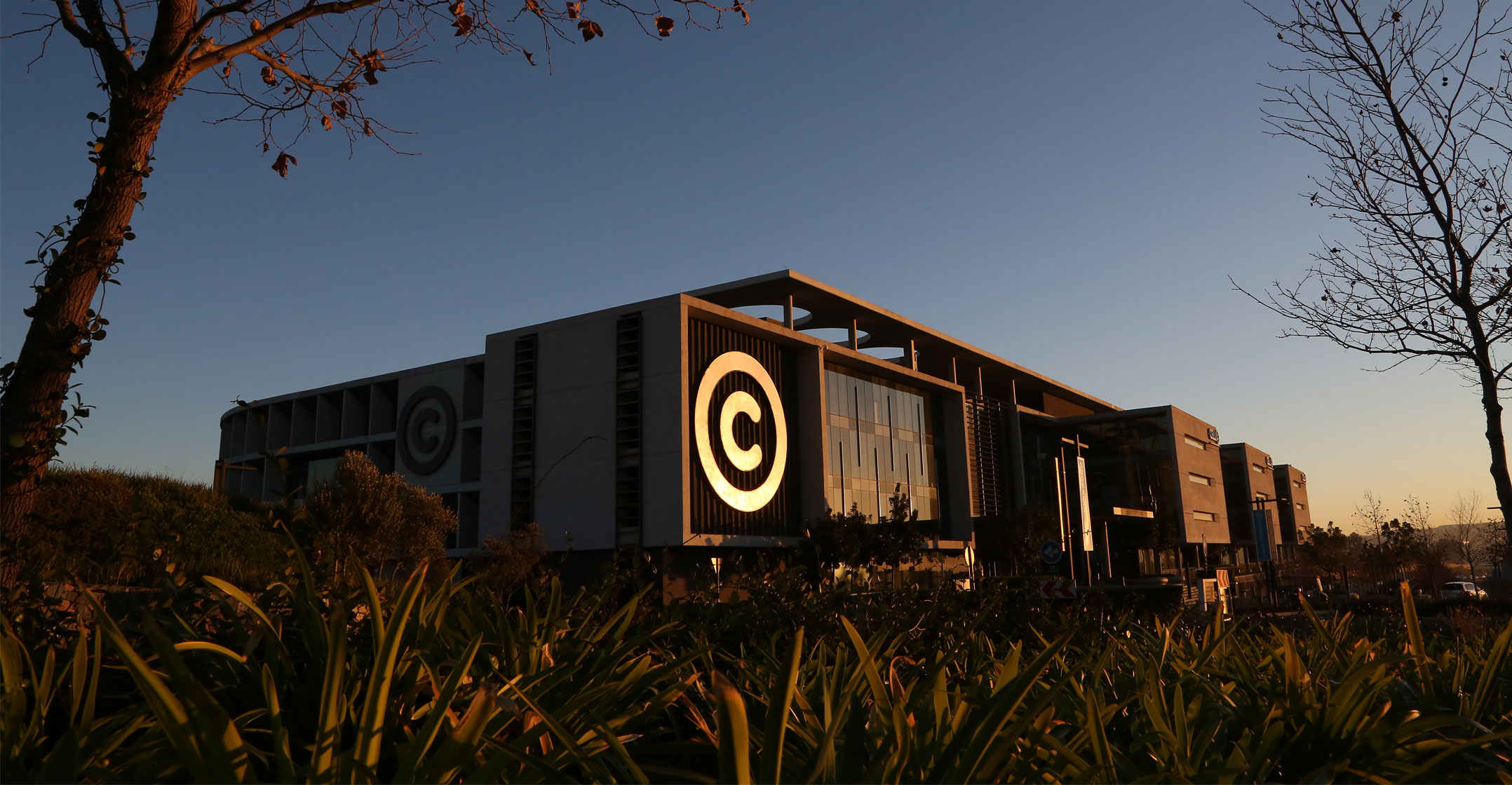
Cell C on Thursday announced an R8-billion net loss for the 12-month period to 31 May 2019, much of this sea of red ink made up of impairments.
Despite this, management has talked up the company’s performance for the three months to end-August and said it’s on track to implement a complex turnaround plan, with a recapitalisation and an impending new roaming agreement with MTN South Africa set to put it on a path to profitability.
TechCentral editor Duncan McLeod sat down with Cell C CEO Douglas Craigie Stevenson and chief financial officer Zaf Mahomed to discuss the mobile operator’s financial performance and its plan not only to pull itself back from the brink but to put itself on a sustainable financial footing.
An edited transcript of the discussion follows.
TechCentral: Why have you not yet published your audited financial results for the year ended December 2018?
Zaf Mahomed: The big issue is how we explain our recapitalisation, whether we can be a going concern. That’s why those results are still unaudited. We now have our auditors over the line, and part of that was the pain you would have seen in terms of the impairments. We took the decision to impair the deferred tax asset and a portion of the physical assets as well as (video streaming service) Black, because when you are in the position that you are, you have to take the medicine, which is the impairments.
The audited results will be presented to the audit committee in November and will go to the board in the same month. We will have to show substantial progress in terms of the recapitalisation, in terms of the liquidity, which we have done, so that’s really what the board will be looking for and we have shown substantial progress.
TechCentral: Is the planned recapitalisation — and I imagine there’s a lot of complex negotiation going on behind the scenes — contingent on the successful negotiation of this new arrangement you are forging with MTN?
Mahomed: There are two parts. One, what is our performance as a business, what does our model look like going forward? That’s the key one that the recapitalisation will focus on. Similarly, it’s how we deal with our debtholders. We have to sit down with them and make them understand what it is we are trying to achieve — and that is what we have been able to do. This is why we talk to them every week — we have a weekly lender call where we update them on our progress, and part of that is to talk to what our operational performance is. Those are the two key elements.

TechCentral: How far down the line are you with your negotiations with MTN for an expanding roaming agreement? Are you expecting to make an announcement soon?
Douglas Craigie Stevenson: Yes, we are very far down the line with MTN and we will finalise this imminently.
TechCentral: By imminent, do you mean days?
Craigie Stevenson: I wouldn’t say days; probably a few weeks. The big thing here is we have to get the performance narrative of the business correct and that, in a lot of respects, is going to tie up with the discussions with the debtholders and what the final recapitalisation will look like. The big thing here is to take 19 years of pain and consolidate it into saying there is a business case for this organisation, that it can get moving in the future and that it’s being managed properly.
Mahomed: There has been a of focus on the MTN agreement being the be all and end all. This is not a magic pill. This is a complete operating model overhaul. It’s costs, it’s revenue, it’s everything in our business. Douglas and I have pretty much gone through every line item from top-line sales all the way down to costs to tax and interest.
Craigie Stevenson: A lot of the performance over the last quarter, or the last five or six months, has really been around us getting inefficient costs out of the organisation, getting it realistic, getting people to be accountable, making sure you know that every single month you are accountable to your shareholders and your stakeholders. It’s very important, because that’s never been the case in the business.
Mahomed: We’ve turned off the taps. We’ve said to the rest of the business: “The taps are turned off, come and tell us why you need to spend. Is it to generate revenue or not?”
 TechCentral: Did Cell C consider business rescue at any point?
TechCentral: Did Cell C consider business rescue at any point?
Mahomed: We have a liquidity committee, made up of non-executive directors. We consider whether we need to look at the next six months’ trading in terms of the Companies Act. What we have done since we started is put in good corporate governance, so there’s a liquidity committee, which looks at our cash flow; there’s Deloitte that looks at our cash flow and I sit every day with them and go through it. Similarly, we have an investment committee looking at the recapitalisation, our operating model, at the MTN agreement.
Craigie Stevenson: Governance is a big thing that’s allowing for the normalisation of the business, which is very important. That’s something that’s not been taken as seriously (in the past) as it needs to be. You’re seeing that manifest now in the share price (of shareholder Blue Label Telecoms) and the write-offs. Too much has been hidden away…
Mahomed: We have the full support of the board to do this. Between Douglas and myself, we have spent the past six to seven months on stakeholder management, lifting the level of transparency in our business, for people to understand what is going on. We haven’t pulled any punches, we have been very straight. This is not rocket science, this is about running a business properly.
TechCentral: What is your network going to look like in the future, after the MTN deal? Will you hand over the entire management of the network to MTN?
Craigie Stevenson: The core network we will definitely keep. The extent of the roaming agreement we will announce imminently.
 TechCentral: Do you see yourself running the active (radio frequency) portfolio of your tower infrastructure in future? Will MTN buy your active infrastructure and run it on your behalf?
TechCentral: Do you see yourself running the active (radio frequency) portfolio of your tower infrastructure in future? Will MTN buy your active infrastructure and run it on your behalf?
Craigie-Stevenson: No.
TechCentral: But MTN will carry a lot more of your traffic in future?
Craigie-Stevenson: Yes, they will have to. We can’t ignore the fact that we can’t compete in the capex race. Both us and Telkom are doing the same thing: dovetailing into the two big MNOs (mobile network operators).
Mahomed: You can’t have four MNOs all spending billions on capex — it’s not sustainable.
Craigie Stevenson: The bigger question you are asking is, do we lose our identity as a mobile network? I don’t believe we do.
TechCentral: You mentioned there is space in the market for maybe one or two infrastructure providers. Do you believe there is a need for some sort of consolidation in the market?
Craigie Stevenson: I don’t believe so at this stage. I believe there is still a lot of competition required in the market and I don’t think you’ll find the market is lazy in competition. If anything, it’s the most competitive it’s been. That said, you do have a dwindling service revenue model in the MNOs, but I don’t believe consolidation is the panacea to solve that issue. Rather, the mobile operators have to start thinking outside the box and start saying: “What do we offer over our bearer as opposed to selling the bearer. How do I sweat this asset differently by putting a different product onto it, whether it’s an OTT player (Facebook and Netflix are examples of “over-the-top” providers) or an MVNO (mobile virtual network operator) type of model?” There is an ability to disintermediate yourself as a network and before you know it you become a dumb pipe — and that’s what you don’t want to happen. You want to be able to say, what does the product of the future look like, and listen to what your subscriber base wants.
 TechCentral: African Rainbow Capital put a valuation on Rain of about R12-billion, much of which is from its spectrum assets. You are sitting on spectrum assets that are also hugely valuable. Rain has an apparently very lucrative roaming arrangement with Vodacom. Do you see a similar arrangement with MTN, allowing MTN to meet demand from its customers and perhaps generate significant revenue for Cell C in the process?
TechCentral: African Rainbow Capital put a valuation on Rain of about R12-billion, much of which is from its spectrum assets. You are sitting on spectrum assets that are also hugely valuable. Rain has an apparently very lucrative roaming arrangement with Vodacom. Do you see a similar arrangement with MTN, allowing MTN to meet demand from its customers and perhaps generate significant revenue for Cell C in the process?
Craigie Stevenson: I don’t suppose you can rule that out. Those are options but right now we are focused on the roaming deal. We use our spectrum in any event, so our spectrum isn’t clean, so to speak, so we wouldn’t be able to sell “unclean” spectrum.
Mahomed: The challenge in the industry is revenue is flat. You could argue there are value-added services — financial services, insurance — that you could add on top that. Opex is growing at inflation-plus, so your bottom line is not really growing and yet, as an industry, you are spending R25-billion or R26-billion/year on capex. So, where’s the return on investment? That’s the challenge. For the smaller operators, it’s about capex/opex substitution, which is why we end we end up roaming. Then the thing is, how do we differentiate to your customers? We are not going to get into another capex race. We don’t have the balance sheet for it; we’d just end up getting into more debt.
TechCentral: What is Cell C’s capex outlook, given that in the 12 months to May it spend R1.9-billion?
Mahomed: It will be similar, if not less. We are looking to curb our capex rather than increase it.
TechCentral: I suppose the danger is you cut it too much and network quality suffers.
Mahomed: That’s why the roaming agreement is so important.
TechCentral: Could we see Cell C roaming on MTN in the cities, too?
Mahomed: If it makes financial sense, why not? But again, we will do a robust analysis and see if it makes sense.
TechCentral: When will the recapitalisation be wrapped up?
Mahomed: We’re hoping by the end of the year. You have to understand that this is a complex transaction. We’re fixing this plane while in flight; we don’t have the luxury of landing this thing at the nearest airport and changing its tyres and filling it with fuel. We are looking at our operating model, managing our liquidity, doing all the operational efficiency improvements and doing the recapitalisation at the same time. That’s why stakeholder management is so important, because we have to manage everyone’s expectations. What we are saying is that we are going to make substantial progress before the end of the year.
Craigie Stevenson: The biggest takeout is that we’ve had almost two quarters of positive financial traction. That’s the message I want to get out there. This business is being run properly and it’s starting to show the results. — © 2019 NewsCentral Media




